An oval-shaped building in Kanoi village in Jaisalmer, Rajasthan is an architectural marvel built with traditional wisdom.
This is the Rajkumari Ratnavati Girls High School — situated in the Thar desert and is said to withstand temperatures up to 50 degrees Celsius due to its unique design. The school, located 37 kilometres away from Jaisalmer city in Rajasthan educates 140 girls from the neighbouring villages with low literacy and also provides them with healthy meals.
Designed by American architect, Diana Kellog, the structure has been built using locally available sandstone by the masons and carpenters from the local communities.
It was conceptualised by Michael Daube, founder of an American non-profit CITTA, that provides women and girls from marginalised communities education and means of economic independence. It began functioning in July 2021 and is funded by CITTA, providing free education for the students who are also given free books, uniform and transport, besides food.
Here’s a glimpse of the Rajkumari Ratnavati Girls High School:

The Rajkumari Ratnavati Girls High School was conceptualised by Michael Daube, founder of an American non-profit CITTA, that provides women and girls from marginalised communities education and means of economic independence.
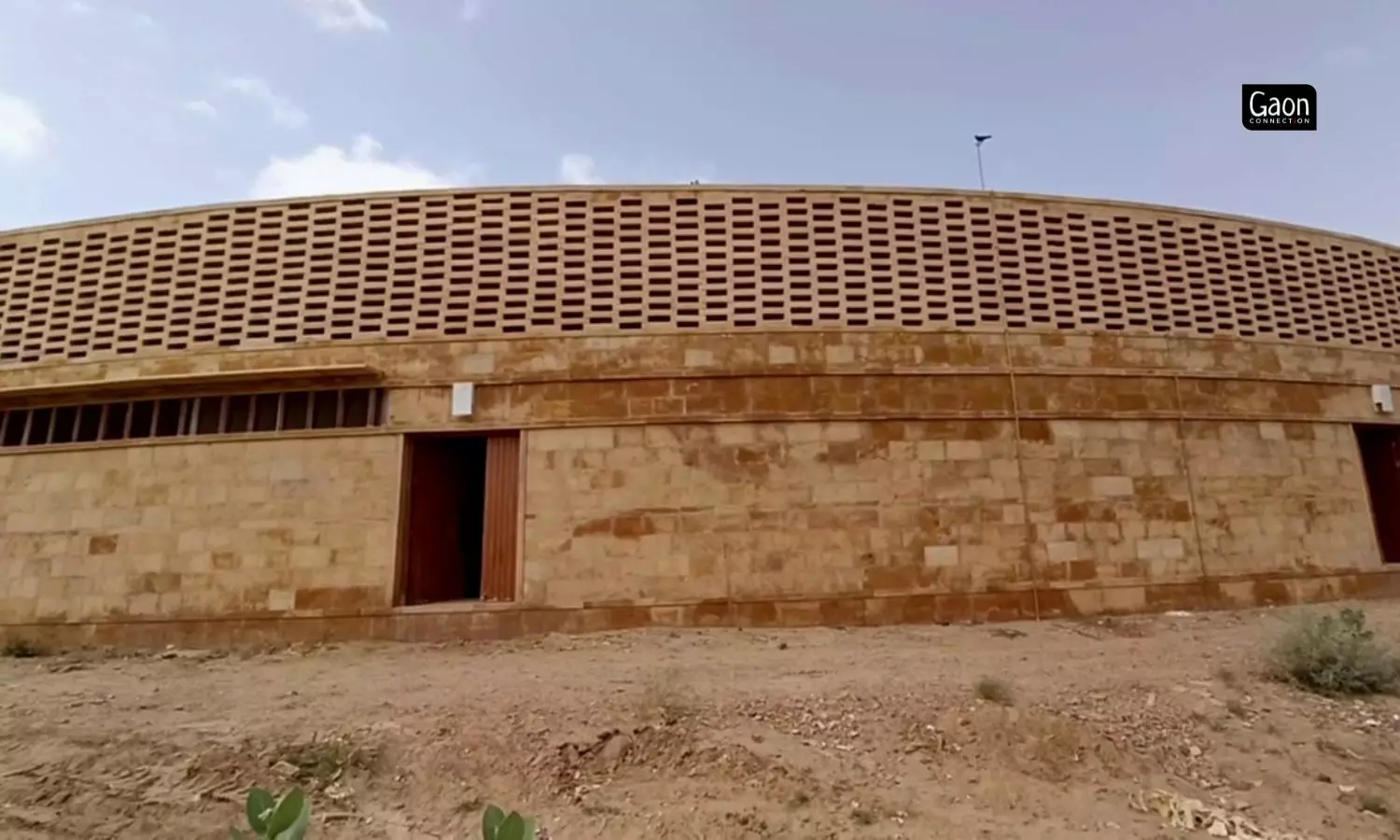
Riya Bissa, an assistant architect in the project said that the walls of the school had to withstand considerable heat and keep the interiors cool. That is the reason we used the local sandstone and then lime to plaster the walls. These are traditional methods that have been used in this area for hundreds of years. Both these keep the inside of the building cool.
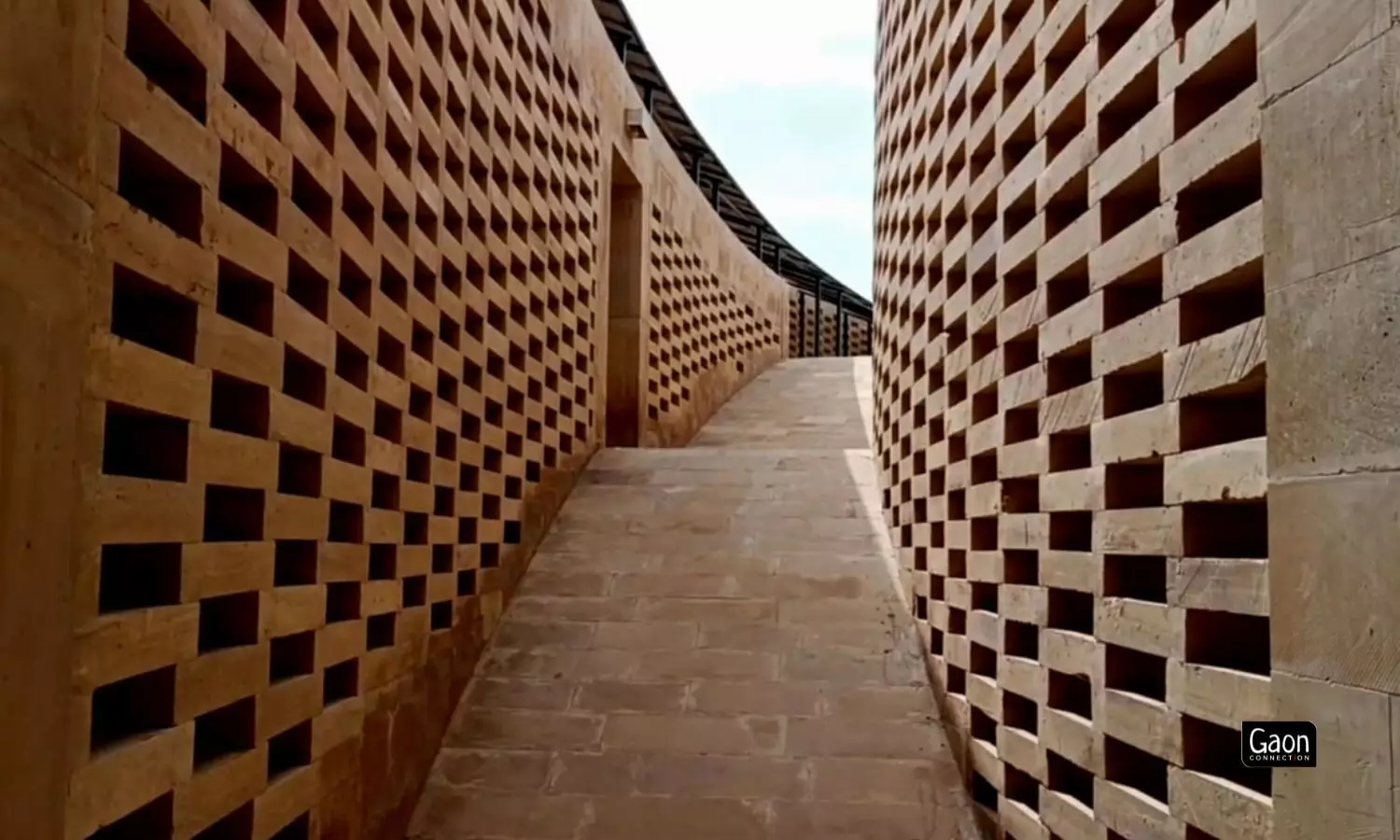
Local artisans and local materials were used to minimise the carbon footprint.
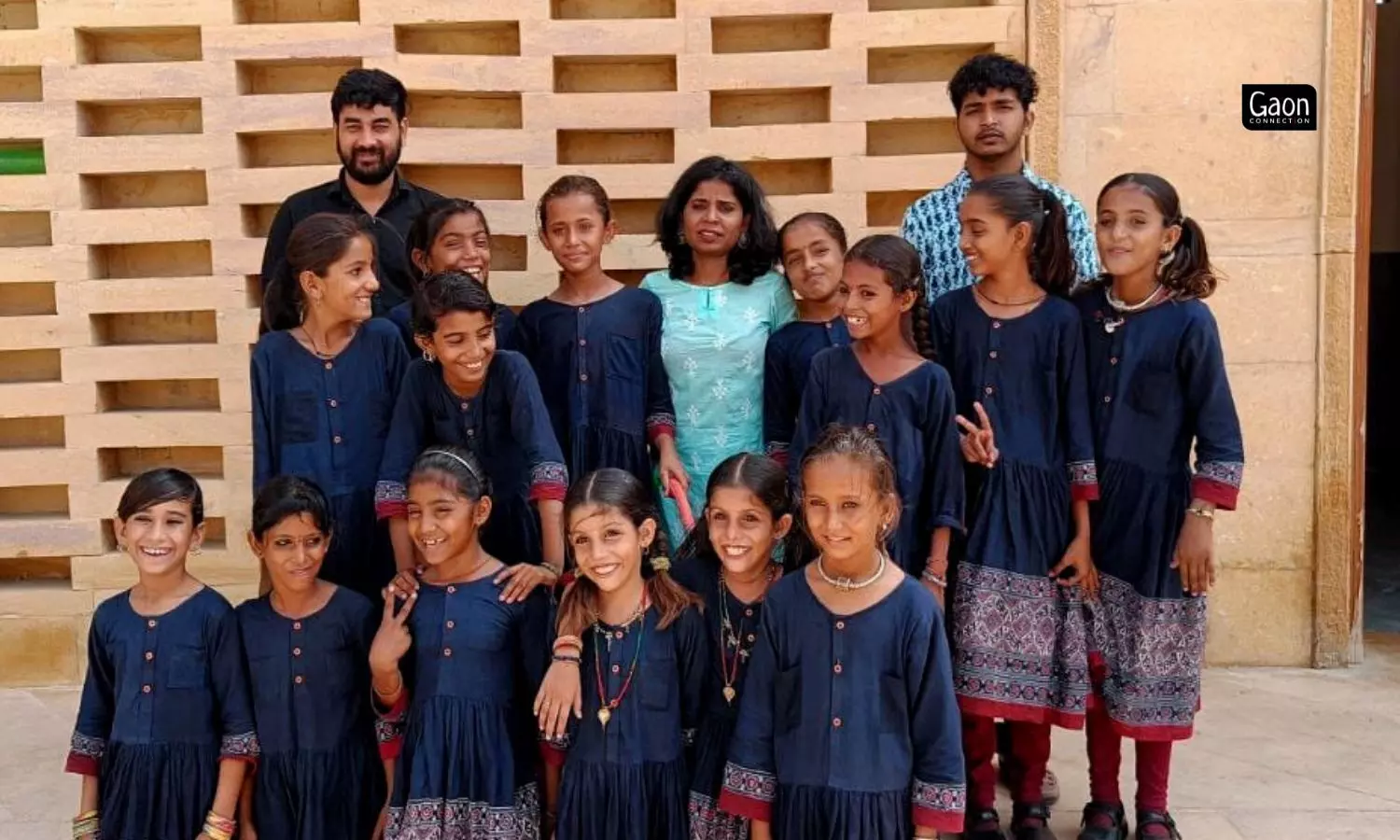
Kowsiki, who teaches English in the school said that in a desert area like this the literacy of women is abysmal and she is excited to be a part of an initiative to raise their education levels and make them count for something.
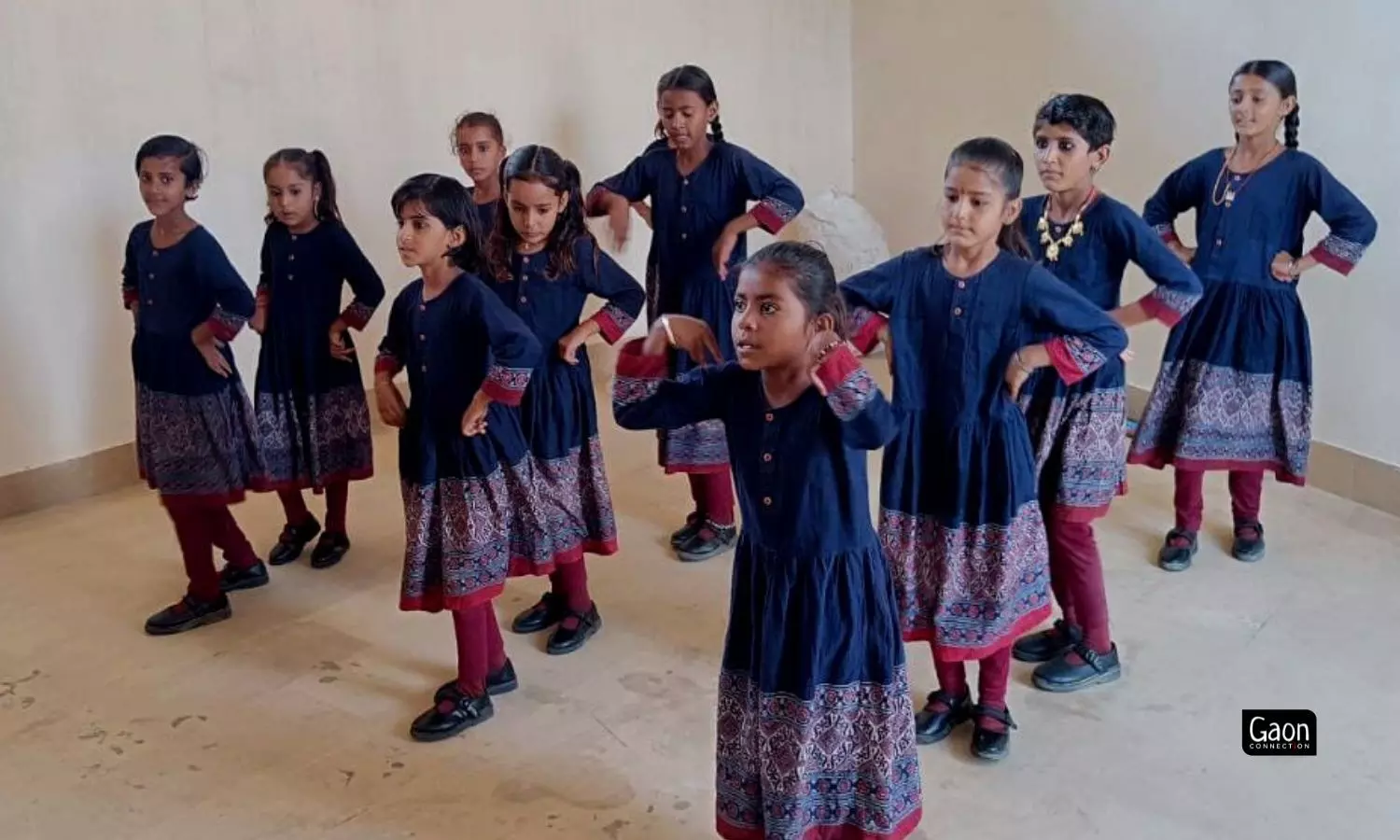
Vasundhara, a 11-year-old excitedly ran to join her friends who were busy practising dance on the famous Bollywood song ‘Des Rangila’.
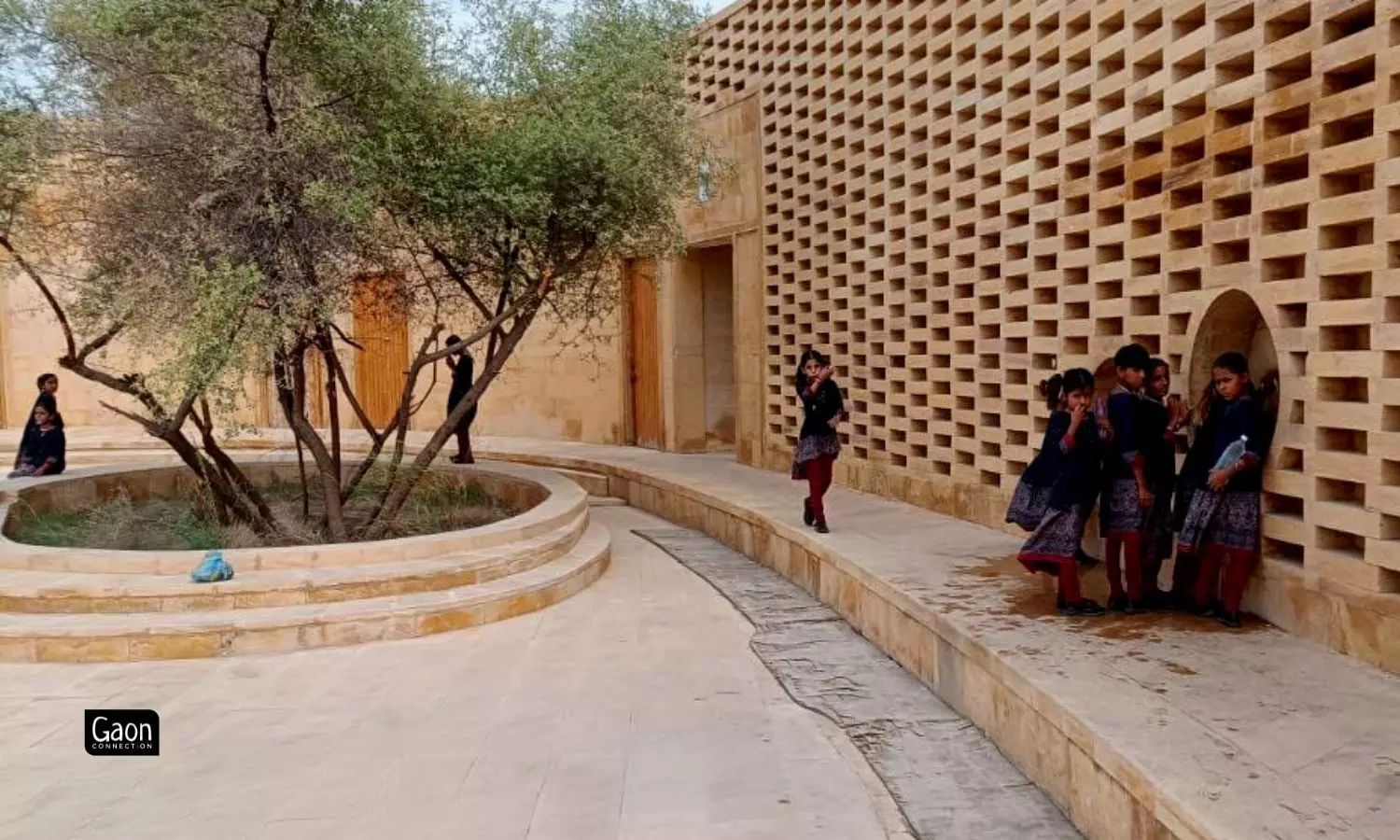
Outside each classroom are planted saplings of the local flora, and they are etched on the sandstone walls as well.
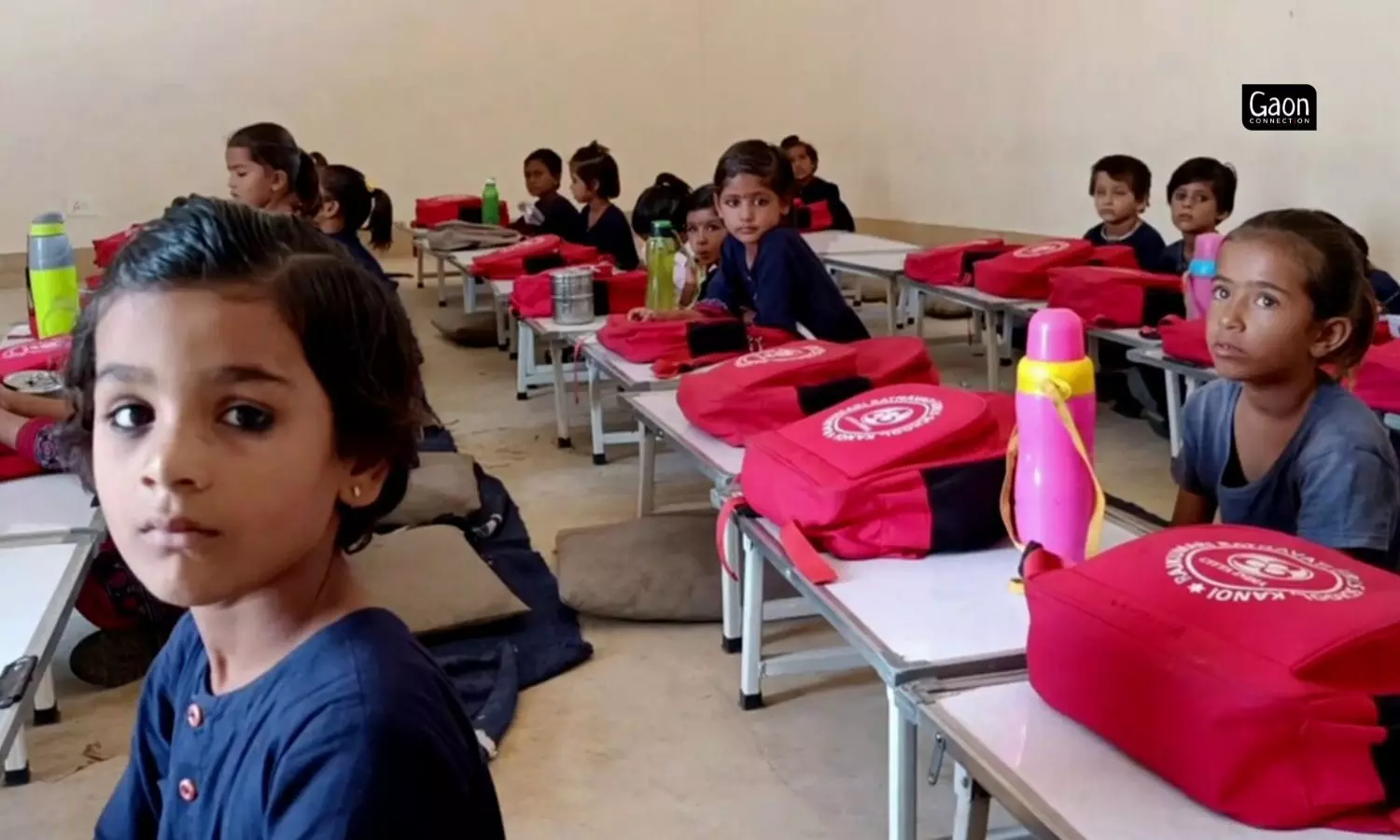
The school is meant for only girl students who come from villages such as Sam, Salkha, Bhilon ki Basti, Meghwalon ki Basti, in Jaisalmer district. A school bus picks them up and brings them to school by 7.30 am and they return home at 1. 30 pm. They get lunch at school.


















